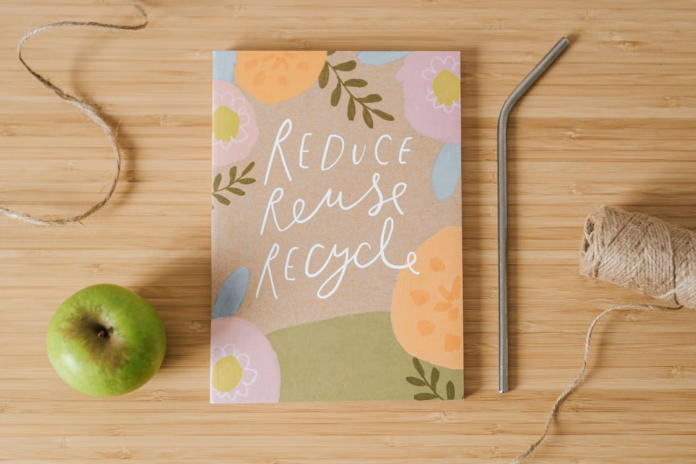Did you know that over 90% of the plastic we discard finds its way into landfills and oceans where it will take hundreds of years to degrade? Even if the huge number comes as a shock, let’s face it, we all have a fair idea of how dire the situation is. Waste is only a part of the problem, though; you also have to account for the resources that go into developing that plastic and the pollution that results from the process. While this is a global problem that will take a collective effort to reverse, you can do your part in helping reduce the impact by nipping the problem in the bud.
Going zero-waste can help cut down the waste you generate and your carbon footprint by a significant amount. But doing so requires you to make significant lifestyle changes, changes that go way beyond using metal straws instead of plastic ones. The best way to start is by reducing your household waste. Embracing the zero-waste lifestyle may seem intimidating, but don’t fret because we have your back. Here are seven simple ways you can turn your home into a zero-waste haven.
1- Separate Your Trash
Separating your trash properly means less waste goes to the landfill. The method followed for segregating waste depends on the local waste management system and the rules vary from one country to another and even from one region to another. You need to make sure that your household trash is properly segregated as per the local rules. It is both a moral and a legal obligation. The most common system that is followed is to separate out organic, plastic, paper, and metal and glass waste. Following the process religiously will ensure that most of the waste that you generate gets recycled. While this won’t exactly reduce the waste that exits your doorstep, it will significantly reduce your addition to the landfills.
2- Turn Household Waste into Compost
Building a compost system is a great way of disposing of your organic waste. While setting up a full-fledged compost system may need some initial investment, you could also set up one yourself. All you need is a few containers and some composting worms. You could reuse some old containers while you could get the composting worms at a local community garden.
Another option is to set up a bokashi system to ferment kitchen waste and generate a nutrient-rich mixture to nourish your plants. However, if you aren’t too keen on setting up your own system or do not have a back yard where you could do the same, you could head over to community gardens, a community compost system, or even neighbors and friends, and contribute to their compost system.
3- Switch to Zero Waste Products
The less waste you bring into your home, the less you take out of it, So try your best to switch to zero-waste products where possible. Avoid buying packed and preserved vegetables, and pick up fresh vegetables from the local farmers’ market instead. Not only are they cheaper, but they are also free of preservatives and can help you reduce your waste.
You can also find packaging-free groceries at numerous no-waste shops that require you to carry your own containers. The best way to make your living space more sustainable is to closely inspect your home and identify things that you could replace with eco-friendly products, from cosmetics to water bottles. Nowadays, there are eco-friendly products and sustainable alternatives for most of the articles that we need. If you look hard enough, you can even find zero-waste alternatives to toilet paper!
4- Reuse and Recycle
A lot of things we label as trash have the potential to be reused. Those jam glass jars that you often discard, can be used as storage containers. Save a few, and you can actually build a proper set. If you buy bottles of drinking water, you should switch to a reusable filter instead. Every time you step out of the house, carry a bottle of water with you. This prevents you from buying a plastic bottle of water. Instead of using disposable plastic straws, you could switch to reusable straws that are generally made up of metal, glass, or silicone. Use handkerchiefs instead of paper tissues.
While these changes may seem inconsequential, in the long run, they make a big difference. Plastic straws that we often use casually, make up 4% of the total plastic waste in the world. If all Americans switched to reusable straws, we could reduce the annual plastic waste by 73000 metric tons! Saying no to single-use plastics is more impactful than it seems.
5- Keep a Diary
A simple way of keeping a track of your progress is to maintain a diary. Not only will it let you keep track of how much you have managed to reduce the waste of your home, but it will also keep you motivated to continue with your effort.
6- Embrace Minimalism
Minimalism is the essence of a zero-waste lifestyle. Every time you get tempted to purchase something, you should give it a second thought and determine if you really need it. This includes electronics, clothes, bags, and so on. When it comes to clothes, fast fashion has an extremely negative impact on the environment, a major part of which is due to their short life cycles. Avoiding fast fashion is part of a minimalistic lifestyle and can help you move towards zero waste. Embracing minimalism will not only help you reduce your waste output, but it will also help you save some money.
7- Join a Local Zero Waste Community
Whether you are a veteran or a newbie to the zero-waste lifestyle, joining a local waste community can help you lead an eco-friendly lifestyle. There are numerous creative ways of reusing and recycling that you can learn from others. Some people have managed to optimize their waste manage to such an extent that they generate only half a jar of waste in a year. Joining such communities can not only help you learn more about how to reduce the waste of your home but also inspire and motivate you.
The zero-waste lifestyle can be a little difficult to commit to, especially at the beginning. However, if you keep at it, you will be able to see the benefits and soon enough, you will experience a sense of accomplishment knowing that you are doing your part to save the environment. These seven steps can help you reduce your waste and reduce your carbon footprint.



















